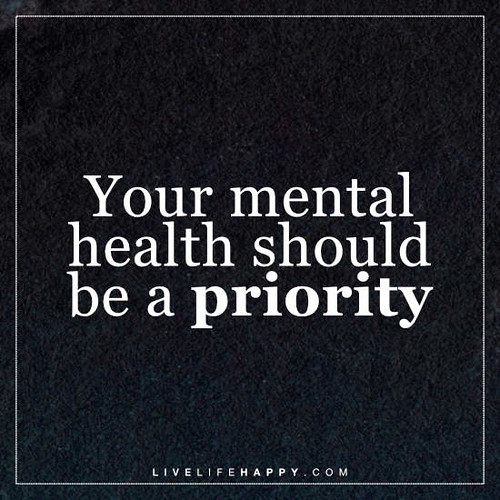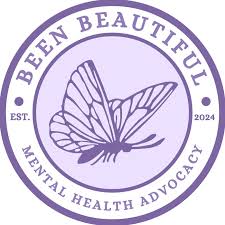Personal Take: Ways to improve your mental health during a global health crisis

The impacts of social distancing and uncertainty during this pandemic can worse one’s mental state. It’s important to prioritize taking care of one’s mental health during a time where physical health is the center of attention in the nation.
April 29, 2020
The strains of quarantine and social distancing having been placing a toll on the mental health of millions of people across America. With the threats of unemployment, financial insecurity, isolation, illness, and uncertainty looming over like a dark cloud, it isn’t a wonder that 72 percent of Americans are claiming that their lives have been disrupted by the pandemic.
As adolescents experiencing the outbreak, we’re particularly at risk for impacted mental health at a time in our lives where we’re already enduring the hardships of being a teenager and growing up. Being socially isolated from friends can trigger many adolescents’ depression – of which more than 20 percent of all American teenagers have. The challenges of distance learning alongside the unknown fate of the school year can trigger many adolescents’ anxiety – of which more than 2.6 million American minors have.
With the fact that an estimated 19 percent of Americans believe the current crisis is having a “major impact” on their mental health, it’s important to recognize the personal mental impacts the outbreak and subsequent quarantine has triggered. The CDC identifies these impacts as ranging from changes in sleep and eating habits to the worsening of chronic mental health conditions to increased fear and worry.
Personally, I’ve begun quarantine struggling a lot with my own mental disorders – my anxiety and my OCD getting more severe as to trigger episodes of nervous tics multiple times a day. I slept a lot more, taking two to three naps a day because, in my words, “It’s better to be asleep than it is to be awake.” Coupled with a lack of motivation or desire to communicate with anyone, the first three weeks of social distancing were rough.
I can’t quite pinpoint what shifted within me. One day, I just decided to pull myself up by the bootstraps. Maybe I realized that the world won’t get any better by me moping around. Maybe I realized that my actions hurt myself and others around me.
Regardless, I implemented a variety of changes to help me cope with my mental health during the quarantine – ranging from areas like diet and exercise to work ethic. These changes were of personal help to me, and may not be feasible or useful to everyone. I simply offer the following tips in the hope to aid at least one person struggling during this pandemic:
Diet – As someone who struggles with disordered eating, I know firsthand how diet can be impacted during stressful times. People can overeat or undereat during these times, and both are harmful to their health. Instead, try to keep a consistent schedule of eating. Ensure to eat three meals a day, with snacks in between if you find yourself getting hungry. Eat lots of protein, healthy grains, and fruits and vegetables to remain satiated and energized throughout the day.
Exercise – Going outside for a walk or run is probably the best thing you can do to clear during this virus. As long as you maintain social distancing, the natural sights and Vitamin D can help mitigate the cabin fever you have from being cooped up in the house too long. As well, creating a fitness schedule for the week can help you build up your body’s strength and keep you productive when there’s not much to do. However, it’s important to keep a healthy relationship with exercise. If you find yourself focusing on burning calories or pushing yourself past a normal limit, try to shift from less intensive exercises to exercises with self-introspection and respect built into them, such as yoga. Always make sure to include rest days when needed!
Attire – While staying in the same pajamas or sweatpants may sound appealing, changing into a fresh set of clothes each day can help you keep track of the days and lose that sense of mental fog that staying home without a routine can develop. Furthermore, wearing school clothes like jeans or a sweater can help you approach distance learning with a more productive and able lense, rather than if you were to feel sleepy doing schoolwork in the same clothes you slept in.
Hygiene – Depression or anxiety can reduce your willingness to maintain good hygiene. Individuals with depression often go for days without showering, brushing their hair, or brushing their teeth. Make it a point in your schedule to take a shower every one or two days. Wake up in the morning and immediately go to brush your teeth, brush your hair, and wash your face. This routine will wake you up for the day, and being in a clean state will help you respect yourself more.
Distance Learning – Get your assignments done the day they’re due in order to reduce the anxiety that comes from piling up assignments. If you do so, you’ll have a schedule to commit to that mimics the one you lost, and a schedule can help you keep accountable and responsible during a time where free time can leave you to your own negative thoughts.
Media – Limit yourself to reading or watching one news piece on COVID-19 a day. Fixating on the constantly-changing circumstances and their potential ramifications will only stress you out more and negatively impair your ability to go about your day. Instead, try to catch up on more positive news.
Relaxation – With the pressures of distance learning, it’s important to allow yourself to relax during these times. Curl up with a book or your laptop. Play video games. Watch your favorite Netflix show. Whatever you enjoy, make sure to spare some time. It’s important to value your wellbeing.
Communication – Make sure to let your family members know how you’re doing. Let them know if you’re struggling mentally or if you just want to vent about everything that’s going on currently. If you and a family member you’re quarantining with have strained relationships, make sure to distance yourself from them to prevent unnecessary collisions. If you have a relative that lives far away, give them a call and check up on them to help reduce your anxiety over the safety of your family members. It’s also important to check up on friends through social media, texting, and video chats. Talking with people outside of those you’re quarantining with can help you feel normal and calm during times of chaos. Joke, rant, do whatever you must do to help yourself out. In addition, your teachers also have an open ear and can also contribute to developing a sense of communicative normalcy.
Simply making efforts to alter your lifestyle to improve your mental health is a step in the right direction, no matter what you’re doing to do so during this pandemic.
At a time where the global state of health and wellbeing is abject, it’s important to recognize the significance of mental health. Every student and person is deserving of a quality life without mental turmoils and strains, especially during these trying circumstances.




















